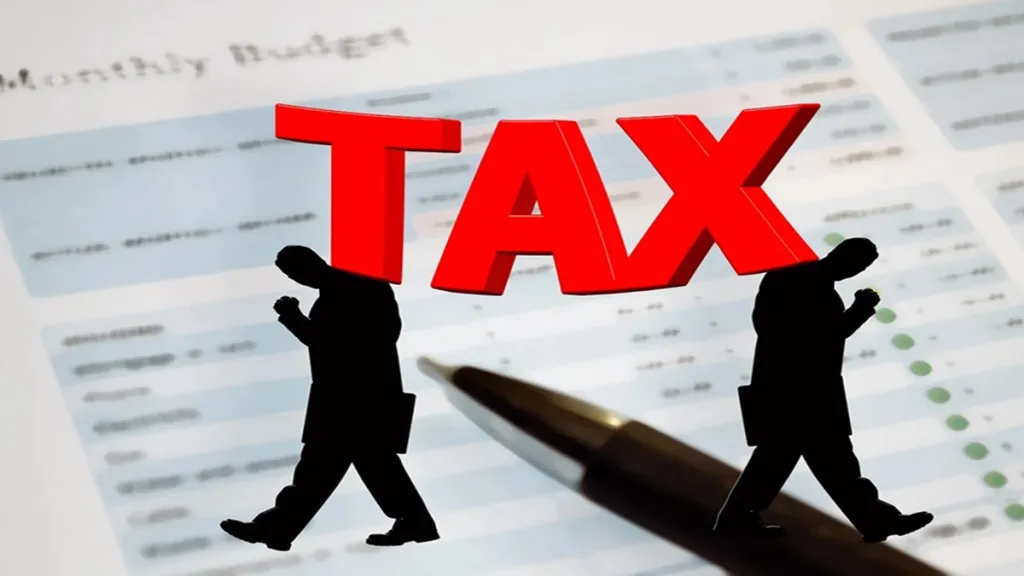If you have donated Rs 5 lakh or more to a lesser-known political party, then the Income Tax Department may also be keeping an eye on you. Recently, tax officials have sent a long list of questions to thousands of individuals who made such donations in the financial year 2020-21.
According to reports, in many cases, the donors gave money through cheques, but they got the same money back in cash, making this process work like money laundering in a way. It is being told that a commission of 1-3% was also taken in such transactions.
Tax exemption on donations and investigation by Income Tax Department
Full tax deduction can be claimed on donations made to political parties, reducing tax liability. Under the current rules, there is no upper limit on donations made to political parties. According to reports, about 9,000 people donated Rs 5 lakh or more in the financial year 2020-21 and claimed tax exemption under Section 80GGC in return.
Recently, the Income Tax Department issued a warning to taxpayers, stating that donations made under Section 80GGC in the ITR may be investigated. Salaried taxpayers were especially advised to keep a record of their donations made in the last three years.
Also read: Under tax radar due to high income and low withdrawals? Here’s how you can avoid tax investigation
Akshay Jain, Partner, Direct Tax, NPV & Associates LLP, said, “Under Section 80GGC of the Income Tax Act, an assessee can claim 100% deduction of the donation made to the political parties. Assessees used to take the benefit of this Section and used this section for reducing the taxable income. However, it was discovered by the revenue authorities that this was used by assessees for claiming wrongful deduction and evading taxes. Assessees used to give donations to the political parties, and the amount was returned back to them in cash after deducting the commission. When revenue authorities came to know of this loophole, they had sent messages and emails to these assessees reminding them to file updated return and pay the taxes that has been evaded previously.”
Now the Income Tax Department has started sending summons under Section 131 (1A) to such taxpayers whose donations seem suspicious. In the summons, taxpayers have been asked for detailed information about their profession, bank accounts, source of income, and donations.
So, who are being summoned by I-T dept?
Recently, many assessees have started receiving summons under Section 131(1A) from the investigation wing of the Income Tax Department for donations made to political parties and have claimed deduction under section 80GGC during FY 2020-21. These notices have been issued to the assessees who have claimed deduction which is disproportionate to their income. In many cases, assessees have claimed deduction of more than 50% of their income, according to Jain.
Do not panic! File a response with supporting evidence
“Assessees receiving such notice should not panic since it is not an assessment notice. They should file a strong response along with the supporting evidence and justification for giving such donations. If the response is not convincing, then the department can reopen the assessment under Section 148 and can make the addition of said donation to the income of the assessee and levy tax, interest and penalty up to 200% on the same,” suggests Jain.
Assessees who want to voluntarily comply can file the updated income tax return under Section 139(8A) and pay the applicable additional tax which is maximum 70% as compared to the penalty of 200%, he added.
It is suggested that assessees should not claim false deductions or deductions for which they may not be able to justify.
What to do if you have received a summons from the Income Tax Department?
Respond online on the Income Tax Portal: Whatever summons you have received, respond appropriately with evidence on the Income Tax Department portal.
Submit all documents related to donation: Keep the donation receipt, bank transaction statement, and registration details of the political party safe.
File ITR-U if you have made a wrong claim: If you have accidentally given wrong information about the donation, withdraw your claim by filing ITR-U.
Be prepared for these questions:
If you have received a notice from the Income Tax Department, you will have to answer the following questions:
-Which political party or electoral trust did you donate to?
-What is your source of income, and where did you raise this money from?
-How much investigation did you do before donating?
-Have you donated to any political party before?
-Which payment mode did you choose to donate, and how will you confirm it?
-Does the political party contest elections, or is it just registered to collect donations?
Also read: Can tax officials ask you about daily rations and toiletries? Here’s what experts say
What does Section 80GGC say?
Under Section 80GGC, any person (except government institutions and certain other bodies) can claim a deduction from their total income for donations made to political parties or electoral trusts. However, this exemption is only available on donations made through digital or banking means, not on cash donations.
Summing up
If you have donated to a political party and taken a tax deduction for it, keep all the necessary documents safe to avoid scrutiny by the Income Tax Department. In cases of wrong or fake donations, you may have to face heavy penalties and legal action. If you have made a wrong claim by mistake, it is better to correct it in time!

